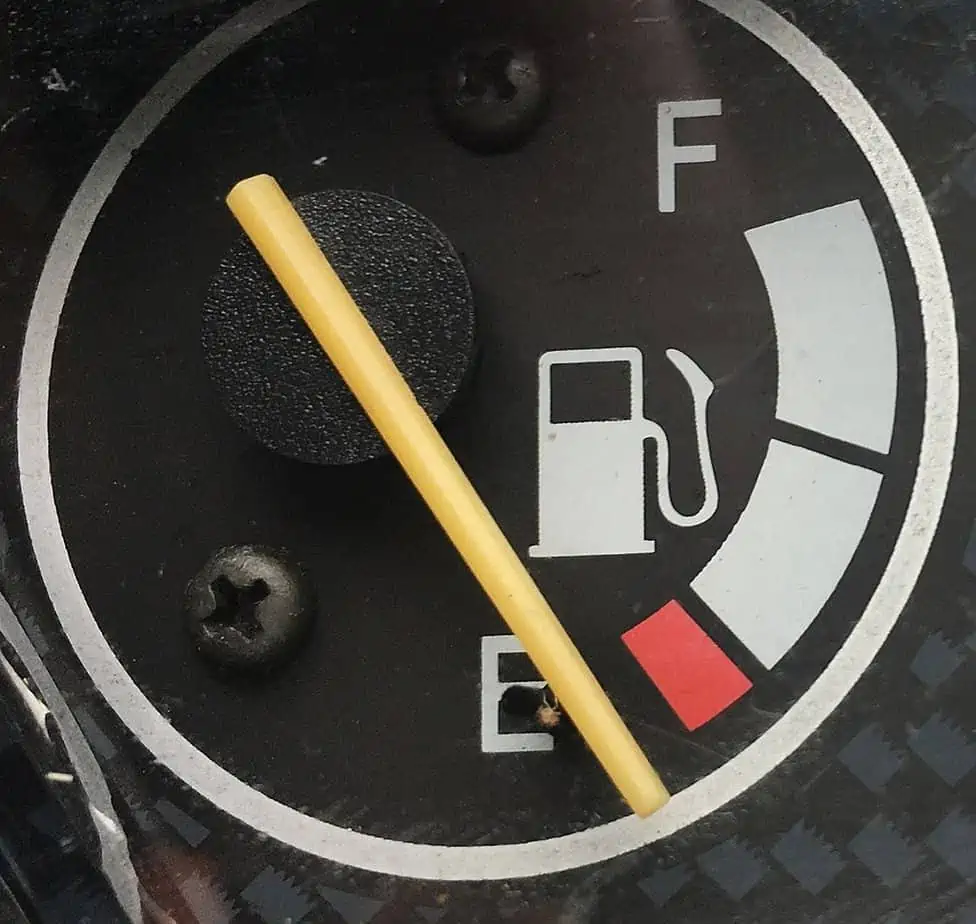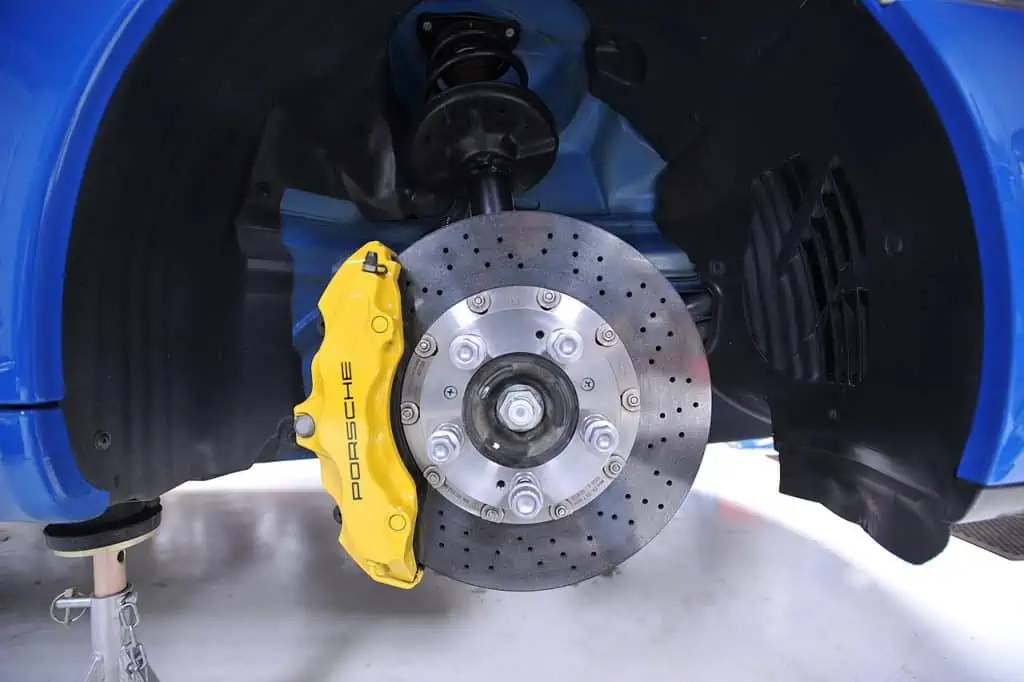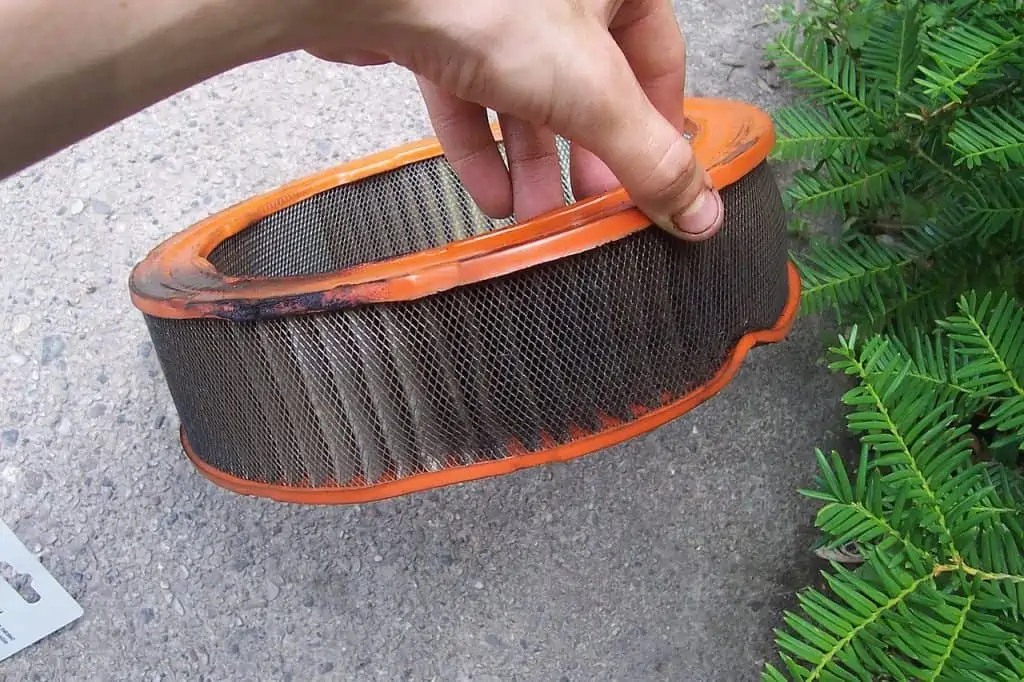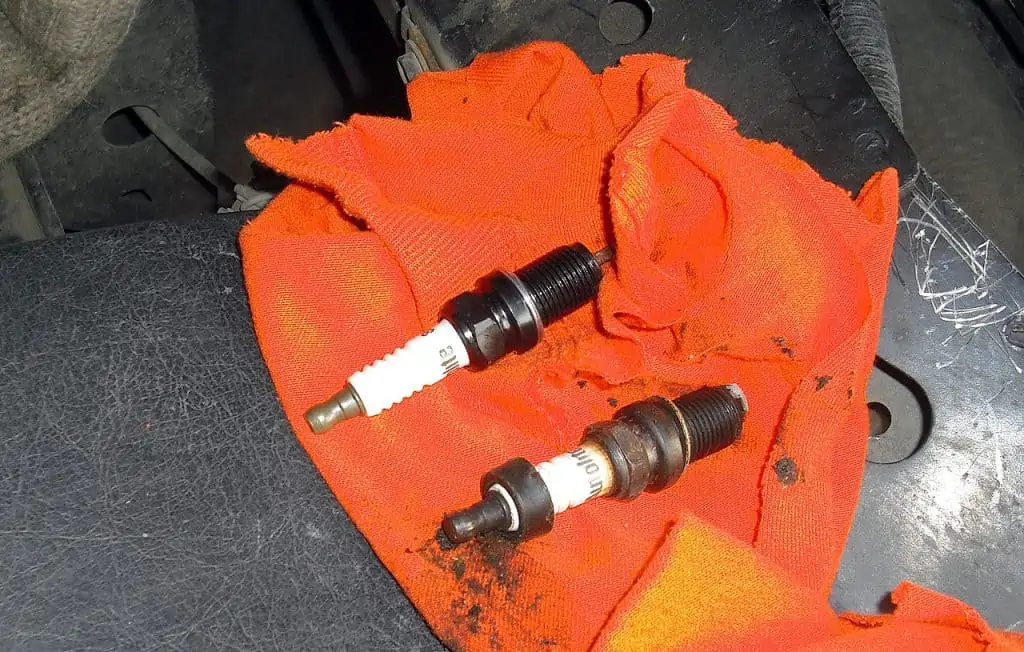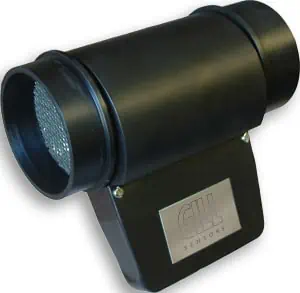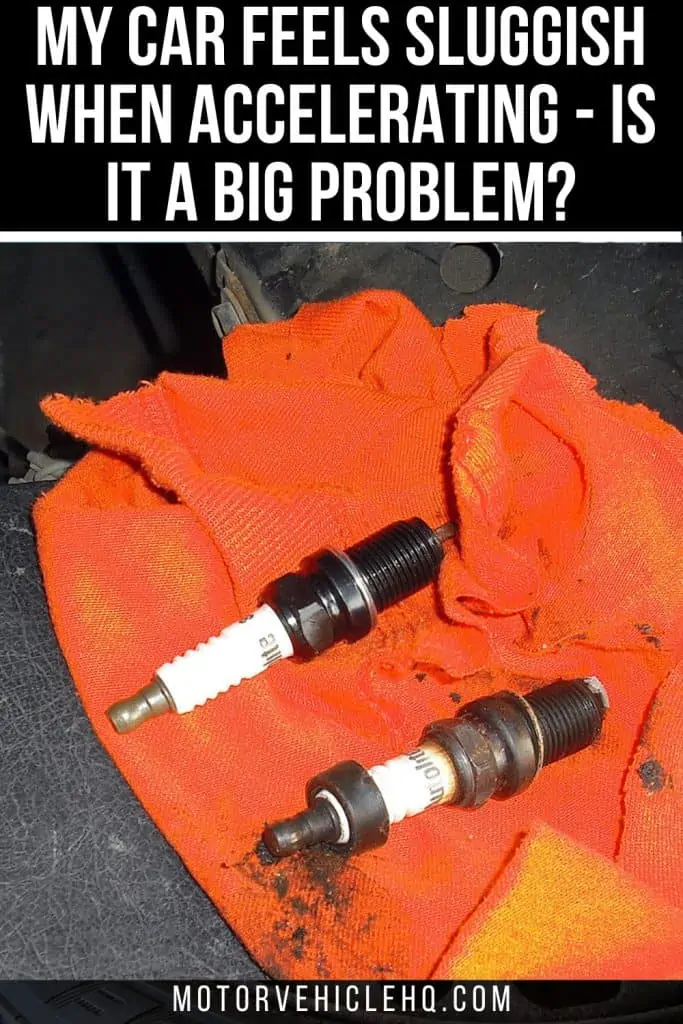Car Feels Sluggish When Accelerating? There is nothing like a nice punchy car boost off the mark, therefore acceleration is crucial. That’s one of the things that personally makes me happy and makes me love my car even more. Nothing else exists like it. Because they provide thrills, supercars are one of the most popular products on the market.
I’ll stop babbling about supercars now. Let’s talk more about why my car won’t accelerate. There are numerous potential reasons why your car is not accelerating. They could be mechanical or electrical problems. Or perhaps your tires are simply underinflated. Performance in your car can be ruined by anything.
We will discuss every reason why my car isn’t accelerating in this article. Then we’ll go over how to handle these problems on your own or by going to a mechanic. Either way will be effective. Let’s start the article now without further ado.
Car Feels Sluggish When Accelerating: What Does This Mean?
When driving a car, acceleration is crucial. This can be explained by two things. The safety component comes in first, and fun comes in second.
You could put yourself in danger if your car is not accelerating well. Imagine that you are trying your hardest to get around a slow car while you are passing it on the road. When you shift into the left lane and press the gas, nothing happens. Your life suddenly flashes before your eyes as a car suddenly appears in the left lane.
A flat tire on a truck by Solasly / CC BY-SA 4.0. Deflated tires are frequently one of the most common reasons why a car won’t accelerate. A deflated tire might significantly impair your performance. This is the situation as your tires are no longer spherical.
To do these simple on-road maneuvers, you need a vehicle with respectable acceleration capabilities. You can experience some issues while driving if your car has poor acceleration.
The enjoyable part is the other element. You need a vehicle that can accelerate quickly from a complete stop. A slow car that takes 10 or 15 seconds to accelerate to 60 mph is not what you want. This cannot be tolerated.
Driving a car with weak acceleration is not pleasurable. You should ask yourself, “Why is my car not accelerating?” if it used to accelerate more quickly but is no longer doing so. Then, you must deal with this problem.
Your car’s inability to accelerate could be caused by a variety of factors. There are concerns with sensors, mechanical issues, and electrical issues. We’ve compiled a list of the most frequent problems that prevent a car from accelerating because anything can happen.
One of the first things you should look out for is these problems, and if they need fixing, try to remedy them. After that, we’ll explain how to remedy them. So let’s start.
The Easy-to-Fix Problems Why Car Feels Sluggish When Accelerating
The first thing that comes to mind when you ask yourself why your car isn’t accelerating is something extremely frightful. You should use caution because certain straightforward issues can result in a poor acceleration in your vehicle. Some of these are fairly easy.
1. Tire Deflation
One of the most frequent causes of a car not accelerating is typically deflated tires. Your performance can be seriously hampered by a deflated tire. Your tires are no longer spherical, which is why this is the case.
The tire is now flat on the ground, which gives it a great deal of traction on the pavement. The engine and transmission are under a lot of strain because of this added grip. As a result, the car is becoming slower and more difficult to maneuver. You should therefore regularly check the pressure in your tires.
Inflate your tires at the nearest petrol station. Your car should drive normally once more after this. And never forget to periodically re-inflate them. If they aren’t inflated for a few months, they may lose air.
2. Leaving the Emergency Brake On
Another error is keeping the emergency brake engaged. Almost all new drivers experience this. When starting a car, there are several steps to follow, and some inexperienced drivers occasionally fail to use the emergency brake. The car feels sluggish because they unintentionally leave it on.
If the emergency brake is insufficient, you might not even become aware of the problem until your back brakes are nearly worn out and burned out.
Therefore, be mindful of the emergency brake at all times and make sure it is disengaged whenever you accelerate. Even if you forget to disengage the emergency brake, a light on the dashboard will illuminate to serve as a reminder.
If you don’t use the emergency brake, there are further consequences. Numerous automotive components will be damaged, including the clutch and rear brake pads. It may be very expensive for you to fix this basic error.
Low fuel indicator by Pittigrilli / CC BY-SA 4.0. Don’t drive a car on reserve fuel as well. Avoid operating a car with an almost empty tank since they despise that. If the tank is left nearly empty, the gas pump may begin sucking air. You’re now stuck with a motor that runs poorly.
3. Having Low or Bad Fuel
Bad fuel that you are putting in your tank is another on the list of easy explanations for why your car isn’t accelerating.
Even while most gas stations sell good fuel, bad fuel can harm your performance. Some of them continue to sell fuel with horrible octane ratings that are useless for anything.
The best course of action is to stop at another gas station if your car is performing poorly. Some fuels work better in certain autos. Specifically due to the fuel additives that some gas stations add. The engines function substantially better as a result.
Do not also operate a vehicle on reserve fuel. Avoid driving with an almost empty tank since vehicles dislike that. The gasoline pump may start sucking air if the tank is left almost empty. You will now be stuck with a poorly performing engine.
Additionally, this might harm your injectors and cause your engine to run low. Therefore, always buy high-quality fuel and fill your tank to a full level. That is if you wish to prevent experiencing some of these issues.
4. Stuck Brake Calipers
Seized brake calipers are another error. This issue occurs when the calipers lock up during braking, putting strain on the rotor. Your pads could be quickly worn out by this pressure.
One wheel will have significantly more brake dust than the other when your caliper is jammed, as you will see. This is an obvious sign that the caliper is damaged.
Your car’s slow acceleration is another sign. Something near the brakes may be to blame if your car accelerates poorly.
Your car might become undrivable as a result of this issue, which could lead to all kinds of problems on the road. Therefore, always inspect your brake rotors and calipers if your car isn’t accelerating.
You can fix a broken caliper if you have the right tools. The pistons that exert pressure on the pads of a caliper can be changed to repair the device. These pistons deteriorate over time because they may start to fail and remain in place. As a result, the caliper continuously applies pressure to the brake pads.
Fortunately, numerous businesses sell rebuild kits for these calipers, and if you have some mechanical experience, you can easily replace them.
However, it is important to keep in mind that these brand-new pistons do not endure for very long, and sooner or later, you will run into this issue once more.
Therefore, we advise that you swap out the old caliper for a new one. It might be more costly. It’s worthwhile, though. Costs for new calipers range from $100 to $200. You should expect to pay $300 to $400 for this + labor. But it will be worthwhile in the long term.
5. Air Filter Failure
An engine must also have clean air to operate effectively. To start the combustion reaction that propels your car forward, your gasoline must be combined with air.
However, the air filter in your engine is used to clean the air so that only clean air gets to the engine to help with the combustion reaction because there might be a lot of impurities in the air.
The car brake calipers by Edgy01 / CC0. Another cause of a car seeming sluggish when accelerating is seized brake calipers. This problem develops when the calipers lock up when braking, stressing the rotor. This pressure could cause your pads to quickly wear out.
Your air filter will clog up with time, just like the fuel or oil filters. Your fuel-to-air ratio will be off if the air filter becomes overly clogged since it will restrict airflow. This will translate into a problem with weak acceleration, just like when the fuel filter is clogged.
In general, air filters are affordable and simple to replace. If your vehicle needs a new air filter, you may end yourself shelling out between $10 and $25 for it.
The Complex to Fix Problems Why Car Feels Sluggish When Accelerating
We spoke about the basic issues that can result in why is my car not accelerating problems. Let’s now look at some other issues that could be preventing your car from accelerating quickly. These issues call for more thorough troubleshooting and auto expertise because they are more complicated.
But for you to better grasp these problems and how to address them, we’re going to simplify them. So let’s start.
Ignition Problems
Your car may accelerate very poorly if there are ignition problems. These issues are not too complicated, and replacing these components with new ones should resolve the problem.
1. Faulty Spark Plugs
Your car’s capacity to accelerate may be impacted by defective spark plugs. Your combustion reaction will suffer if one or more of your spark plugs are broken or contaminated in a way that stops them from sparking correctly or, worse still, from sparking at all.
When you press the accelerator, your engine’s spark plugs ignite the fuel and air combination hundreds of times per minute, causing the pistons to rise and fall in the cylinders and move the wheels.
It’s completely feasible that you were going to miss some of these combustion events during an engine misfire if your spark plugs aren’t sparking precisely when they should. The gasoline and air mixture is sprayed into the combustion chamber when your engine misfires, but it doesn’t ignite. Your engine loses power since that gasoline was spent on that stroke.
As a result, the remaining cylinders will need to work harder to make up for that one cylinder’s misfire. This means that you will lose power and perhaps not be able to accelerate as quickly as you’re used to because your engine simply cannot operate at P-peak power.
If you have a four-cylinder engine and one of your spark plugs has broken, you are losing 1/4 of your power. You would lose half of the power if two of the spark plugs failed.
At some point, you’re going to experience issues like a complete engine stall on you and possibly having to try to restart your car when you stop because it just shuts down without warning. As you might imagine, if you stopped to try to turn the corner at a stop sign or stop light, for example, this may be a significant issue.
Your final cost for a replacement spark plug could range from roughly $5 to as high as $50, depending on the type of spark plugs your car utilizes. However, the typical cost is in the $10 to $15 range.
2. Malfunctioning Coils
Another ignition component that frequently fails and affects your car’s ability to accelerate is a bad ignition coil.
An auto engine air filter by Ahanix1989. Like the fuel or oil filters, your air filter will clog up over time. If the air filter becomes extremely clogged, airflow will be restricted, and your fuel-to-air ratio will be off. Similar to when the gasoline filter is clogged, this will result in an issue with weak acceleration.
The spark is transmitted to the spark plug by the coils. Your car will operate poorly if they are not in good condition and cannot deliver a spark. This could lead to subpar acceleration.
You must purchase a new coil and swap out the old one to resolve this issue. A brand-new coil can be pricey and may exceed $100.
3. Wire and Distributor Defects
If you have a carbureted vehicle, a bad distributor and wiring can also be a problem. These distributors are notorious for breaking down as they get older because the components that send the spark via the wires corrode.
Your distributor probably needs to be replaced if it is old. The cables are typically changed along with these distributors. Another component that can malfunction in older cars is wiring. When both of these components fail, problems might arise, such as why is my car not accelerating.
The cylinders don’t function properly if these parts are just partially or not at all delivering the spark to the spark plugs. Your car is going to experience issues at this point. Therefore, to fix this issue, you must replace the distributor and wires.
Failure of the Sensors
Sensor issues could also prevent your car from accelerating. The mass airflow sensor, the crankshaft position sensor, the TPS sensor, and the oxygen sensor are the four sensors that can seriously harm your car’s performance.
1. Problems with the Mass Airflow Sensor
Mass airflow sensors are prone to failure, which could result in a variety of problems. These sensors track how much air is drawn into the engine.
They are situated immediately behind the airbox. Their objective is to optimize the fuel-to-air ratio so that your engine runs at its peak efficiency.
The sensor may give the computer misleading results if it is clogged with dirt or faulty. The engine will then start acting abnormally and lose power as a result of this.
You must connect your car to an OBD2 scanner tool to diagnose the issue and check the mass airflow sensor’s condition. The computer will let you know which sensor needs to be fixed.
Mass airflow sensors can cost more than $100 for a brand-new one, and they are typically more expensive. Avoid purchasing low-quality knockoffs because they won’t endure and always strive to get OEM components or high-quality third-party items.
2. The Oxygen Sensor
Another crucial sensor that, if it malfunctions, can seriously affect your car’s performance is the O2 sensor. Right after your catalytic converter is where you’ll find this sensor. This sensor gauges the amount of oxygen present in the exhaust pipe.
And when this sensor develops major issues, such as clogging up or breaking, your car may perform poorly as a result. In addition to other problems, it may cause the engine to misfire.
It’s therefore preferable to replace this sensor. Specifically, this sensor instructs your engine on how to function. In addition, a bad sensor will result in improper engine operation. One of them is the reason why my car doesn’t have any issues with acceleration during the process.
And you don’t want your car to experience this. You must purchase an OBD2 scanner tool and run a code check on the vehicle to determine the sensor’s condition. It’s time to replace this sensor if there are any fault codes associated with it. O2 sensors can cost more than $150 for a brand-new sensor, which makes them rather pricey as well. Use OEM parts, just like with the mass airflow sensor.
The old spark plug removed from the car, new one ready to install by Myke2020. Defective spark plugs may reduce the acceleration of your car. If one or more of your spark plugs are damaged or polluted in a way that prevents them from sparking properly or, worse still, from sparking at all, your combustion response will suffer.
3. A Defective Crankshaft Position Sensor
The camshaft position sensor and the crankshaft position sensor constantly track the location of the crankshaft in your camshaft. As a result, your car’s computer may make small modifications to improve the timing of your engine so that the combustion reaction always occurs at the ideal time.
Your computer will receive the wrong data if the position sensor is not functioning as it should, which could lead to your car receiving inaccurate engine timing information. This has a similar impact to when your engine’s timing belt is damaged. A defective crankshaft position sensor will likely set you back between $175 and $250 to replace.
4. TPS Sensor Failure
The angle at which your throttle valve opens is measured using a TPS sensor, or throttle position sensor. It’s connected to your car’s accelerator so that how hard you press the gas pedal affects how wide open the throttle is.
However, if the sensor malfunctions, your car’s computer won’t receive accurate information about the speed you’re attempting to reach when you press the gas pedal. In essence, a damaged TPS sensor means that your car is no longer able to determine exactly how fast you wish to travel. You can see how that would affect your capacity to pick up speed after a stop.
If your car needs a new TPS sensor, the cost to have it changed will be between $100 and $250.
Engine Issues
Your engine’s condition could also be the cause of your problem with sluggish acceleration. You will only obtain a percentage of your engine’s performance potential if its health is inadequate.
You can experience loss of compression if the engine parts don’t seal properly; this could lead to poor engine performance and reduced horsepower ratings.
The outcome will be a gradual acceleration. Even if the engine loses all of its compression, it will still simply seize up and stop working. Alternatively, the block can break and disintegrate.
Engines typically have a 200,000-mile lifespan with regular maintenance. Some of them persist for even longer. Therefore, before purchasing a new engine, ensure that it is in good condition and will last for many more miles.
A Defective Fuel System
You might wonder why your car won’t accelerate if there are issues with the fuel system causing poor performance. In this chapter, a few of these issues with a poor fuel system will be discussed.
1. Fuel Filter Blockage
One of the causes of a poor acceleration issue could be a clogged fuel filter. All of the pollutants present in the fuel will be blocked by this filter.
This is because the fuel we put in our tanks contains some trash. Fuel filters are designed to clean the fuel before it enters the engine. These filters typically clog when they near the end of their useful lives and stop allowing fuel to enter the engine.
if the fuel distribution system is somehow interrupted. This will cause the problem with my car not accelerating to the surface.
A mass airflow sensor by Gillsensors / CC BY-SA 3.0. Your car may be unable to accelerate if there are sensor problems. The four sensors that can seriously impair your car’s performance are the mass airflow sensor, crankshaft position sensor, TPS sensor, and oxygen sensor.
Your gasoline filter needs to be changed to resolve this issue. This fuel filter is attached to the frame rails that support the car’s structure and is typically found underneath the vehicle, next to the fuel tank.
Fuel filters are simply replaceable and reasonably priced. Therefore, it may be time to check your fuel filter’s quality and replace it with a new one if you are experiencing a severe acceleration issue.
2. Damaged Injectors
Your car may not accelerate if your fuel injectors are damaged. They won’t supply each cylinder with the appropriate amount of fuel if they are past the end of their useful lives.
Lack of the proper amount of fuel in each cylinder will cause poor acceleration or even dangerous engine stalling.
You can connect your car to an OBD2 scanner and run a checkup to see how your injectors are doing. You will be able to identify which injector is defective and has to be replaced if there are codes on particular injectors.
The good news is that injectors for gasoline-powered vehicles are reasonably priced and easy to find. But it may be expensive if you have a large diesel truck. Given that diesel injectors use far more sophisticated technology and demand much more accuracy in fuel delivery.
A Malfunctioning Timing Belt
Your engine’s camshaft and crankshaft are connected by the timing belt. Your engine’s ignition timing, which regulates the combustion reaction, is controlled by it.
The timing belt moves along with the crankshaft as it turns, which causes the camshaft to turn as well. The valves are opened by the camshaft’s rotation, allowing the pistons to rise in the cylinder along with the crankshaft.
The spark plug injects the gasoline and air mixture into the cylinder, and when it ignites, an explosion drives the piston back out and keeps the crankshaft turning.
Your timing will suffer if your timing belt is not working properly, perhaps because it is thin and some of the teeth that grip the gears at the end of the camshaft and the crankshaft are breaking off. This implies that your combustion reaction might occur improperly or not at all, which would negatively impact your vehicle’s acceleration.
The price of a timing belt repair could range from $300 to as much as $2,000 depending on the make and model of your car. However, on average, you’re probably looking at around $500.
Car Feels Sluggish When Accelerating: Can It Be Caused By a Bad Transmission?
Your transmission may be the source of the delayed acceleration you experience after stopping. As an illustration, your transmission may slip if you run low on automatic transmission fluid. Due to this, things like decreased power and generally poor acceleration result.
You should budget about $300 for parts and labor to complete this task if your car requires fresh transmission fluid.
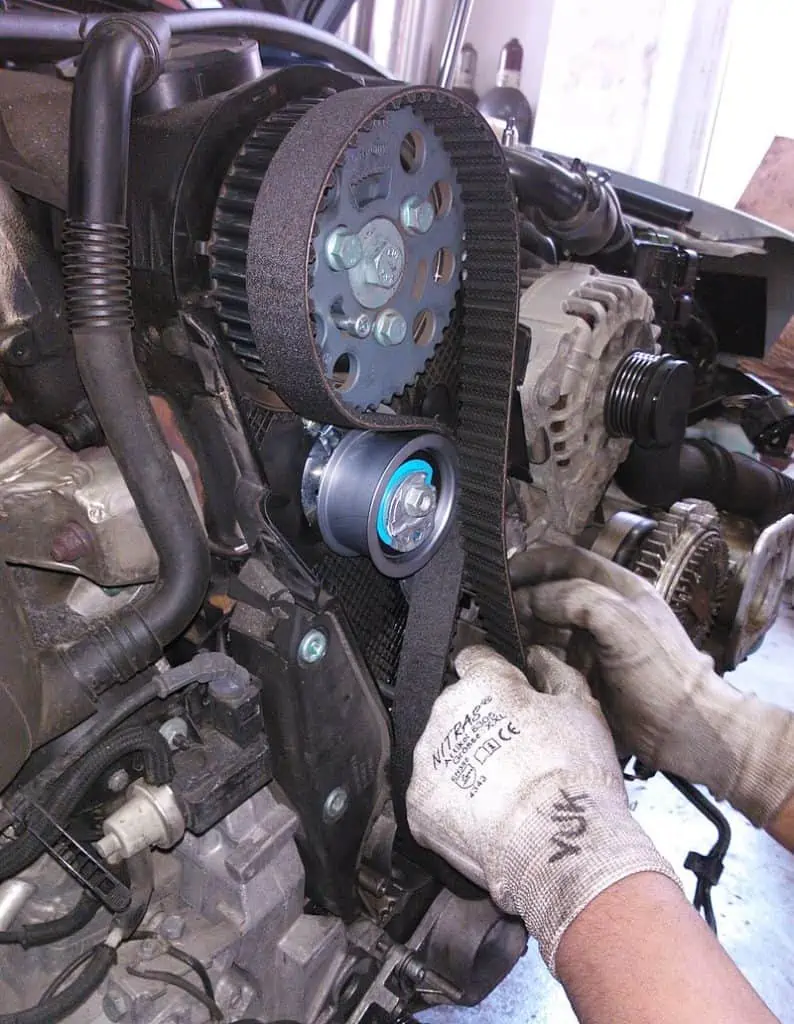
A timing belt is installed by Petar Milošević / CC BY-SA 3.0. The combustion reaction may take place wrongly or not at all if the timing belt is worn down, or thin, and some of the teeth that grasp the gears at the end of the camshaft and crankshaft are chipping off. This would have a detrimental effect on your vehicle’s acceleration.
The Conclusion
We have discussed a lot of the why is my car not accelerating issues in this article. We talked about common problems that can occur, such as frozen calipers, forgotten emergency brakes, and deflated tires. Your car’s acceleration may be severely hampered by all these easy fixes.
The ignition system was one of the later, more complicated things we addressed. Additionally, we discussed which parts of the ignition system can make your car drive poorly. Spark plugs, wires, and coils are prone to breaking down and developing several problems with engine power delivery.
Next, we looked at the engine to see if any engine problems would be causing the poor acceleration. Higher mileage autos with a lot of kilometers on them commonly suffer engine problems.
The issues with the fuel system have also been discussed. If you want the power to be delivered properly, the fuel system is crucial. This system has a fuel filter, which can become clogged with debris, and injectors, which can malfunction after being used for a long time.
Each of these issues has an appropriate remedy. To solve your problem, all that is left for you to do is troubleshoot and determine what works and what doesn’t.

The old spark plug removed from the car, new one ready to install by Myke2020

Jim Wicks is the founder of MotorVehicleHQ. With over two decades of experience in the automotive industry and a degree in Automotive Technology, Jim is a certified car expert who has worked in various roles ranging from a mechanic, car dealership manager, to a racing car driver. He has owned more than 20 cars over the past 15 years. Ask him about any vehicle you see on the road and he can tell you the make, model and year. He loves the aesthetics of all things cars, and keeps his vehicles in pristine condition.
In his free time, Jim enjoys getting his hands dirty under the hood of a classic car or taking long drives along the country roads. His favorite car? A 1967 Shelby GT500, a true classic that, according to Jim, “represents the pure essence of American muscle.”

